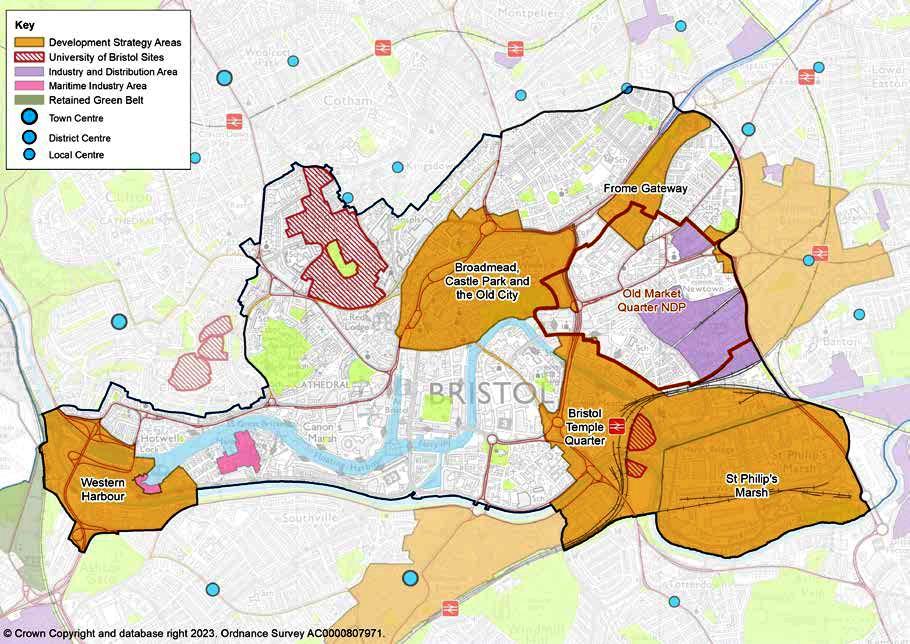Local Plan review: a final chance to comment
The review of Bristol’s Local Plan is coming to its final stages. Full Council approved the final draft Plan in late October and it is out to consultation until Friday 26 January for formal representations. The Council will then submit the local plan, and any proposed changes it considers appropriate, to the Secretary of State who will appoint an Inspector to carry out an independent examination. Disappointingly, many of our comments on previous consultations, including on tall buildings and the importance of a design vision for the city that reflects community aspirations, have not shifted the final draft document in any meaningful way. We have met with the Council’s Local Plan lead to understand why our concerns have had so little impact and are now in the process of putting together the representations we want to make.
Take a look at our draft response to see what we plan to say. Contact us with any comments or questions.
In examining the Plan, a planning inspector will assess whether the plan has been prepared in accordance with legal and procedural requirements and if it is sound. The four tests of soundness are set out in national planning policy (the National Planning Policy Framework). Our representations must be made with reference to one of those tests. In examining the Plan, the inspector will consider the evidence provided by the City Council to support the Plan and any representations put forward by local people and other interested parties such as developers. The examination is likely to include hearing sessions which are held in public.
A central focus of a Local Plan is setting a housing target and setting out how it will be achieved. Recent government planning policy is looking to force cities to accept unachievable housing targets (via the ‘urban uplift’). But the targets have always been advisory and Bristol has set a target based on what the council thinks can realistically be achieved, looking to adjoining local authorities to help make up the outstanding numbers. Tackling the housing crisis and building more homes is very important, but this does not have to be at the expense of irreversibly harming Bristol’s character or in ways inconsistent with the city’s ambition to be carbon neutral by 2030. This is why, for example, the Society has consistently called for a more effective policy on tall buildings.
But there are many more topics in the Local Plan, including policies on matters such as employment, open space, nature and flooding as well as site-specific allocations for new development. It is a massive document, with many side documents, which is overwhelming if you try to read it cover to cover. But do have a look at the things that interest you and perhaps affect where you live. Don’t be put off by the planning jargon. Put in your representation, which could be just a few sentences, in the way that best reflects your concerns.
Alan Morris
Current consultation documents.
2018 Bristol Civic Society consultation response

